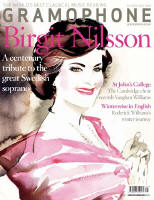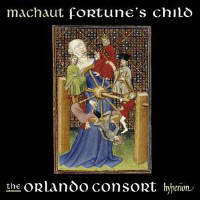Texte paru dans: / Appeared in: |
|
|
Outil de traduction (Très approximatif) |
|
|
Reviewer:
Fabrice Fitch Five volumes in, Hyperion’s Machaut series shows no sign of running out of puff.In large part that’s due to Machaut’s seemingly inexhaustible invention. The first few selections here illustrate this well, the extrovert three-voice Gais et jolis succeeded by the brooding, contorted two-voice Dous amis, oy mon complaint and the dance-like, monophonic Dame je vueil endurer. Bearing in mind how different to our own were prevailing attitudes towards text and music in Machaut’s day, the moods of these settings bridge the centuries almost effortlessly; but then the poly-textual motet Trop plus est bele reminds us that Machaut was a child of his time, after all. And so it continues, the Orlandos combining in as many groups of one, two and three as possible. As with previous volumes, the programming of this series is deeply impressive. It’s striking that however English they may sound in their approach, the Orlandos project and enunciate Machaut’s French so well that one rarely reaches for the printed text. As to the vocal quality, the Orlandos’ house style is flexible enough to accommodate a full-throated approach, as in the poly-textual pieces, where the individual voices seem to compete for attention. I’ve mentioned before that the vibrato of the tenor part is a touch obtrusive in places, but the compelling sense of ensemble easily overrides this. It’s hard to single out any particular piece or performance but Angus Smith’s solo turn in Dou mal qui m’a longuement and the following rondeau Comment puet on miex are particularly well turned out. The latter, incidentally, has a sequence that prefigures Solage’s famous Fumeux fume. That’s the sort of observation that jumps out at first hearing, but not necessarily off the page; one vindication among many of this large-scale undertaking.
|
|




